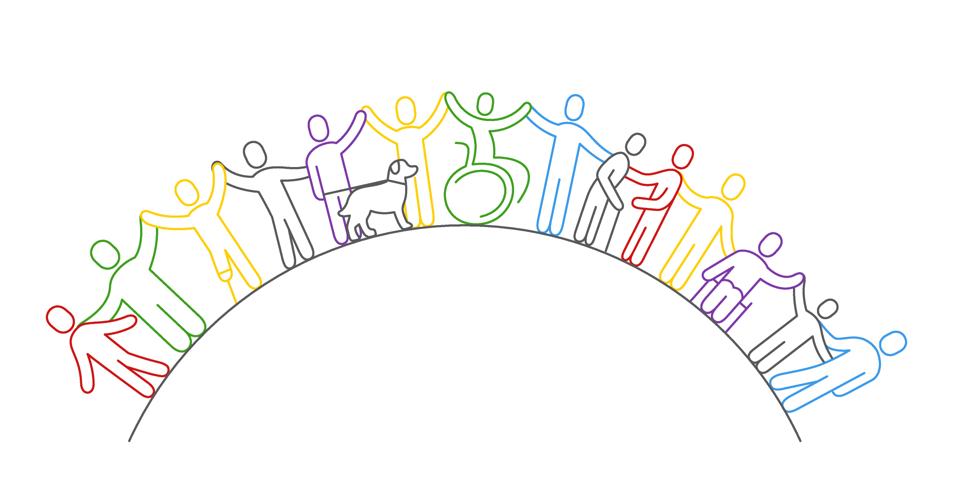The investment portfolio is a powerful lever that nonprofits and faith-based organizations can use to support their missions. Not all of the over 200,000 nonprofits that have investment accounts or nearly 68,000 congregations that derive part of their income from investments can hire full-time staff or consultants to align their portfolios with their missions. Without this alignment, these organizations risk mission drift, the default setting of veering further and further off course from their ultimate destination.
Since 40% of nonprofits in the US are faith-based, and given my experience spending over five years in Trinity Church New York City’s investment office and enmeshed in a broader community of practice with other faith-based investors, this article focuses on aligning faith-based investment offices and portfolios with a focus of many religions: human dignity. It also applies to secular mission-driven institutions that share the mission of advancing human dignity.
Aligning investment portfolios with human dignity is broad and flexible enough to apply to the entire portfolio across market conditions without increasing portfolio concentration or other investment risk or compromising returns. It is also intuitive enough to communicate to an asset manager, financial institution, or other advisor, as well as to a broader congregation and even the public.
Investing in Human Dignity
How can faith-based and mission-driven investors codify their focus on human dignity and incorporate it into manager and portfolio underwriting and monitoring? At Trinity Church, we have distilled the nexus between human dignity and materiality, or relevance to investment decision-making, into our Wellbeing and Fairness Framework, which is designed to be intuitive, practical, evidence-based, and palatable to asset managers. We remind the managers in our portfolio about our wellbeing and fairness framework in an annual letter and use the framework to engage in position-level diligence (i) in advance of prospective capital commitments or investments with new or existing managers, (ii) when managers share new positions with heightened wellbeing and fairness risks, or (iii) when a position generates headline risk due to wellbeing and fairness issues.
Faith-based investors and other nonprofits can likewise engage the asset managers or financial institutions that manage some or all of their investment portfolios and share the burden of this work with peer organizations through communities of practice.
The Wellbeing and Fairness Framework
Wellbeing is the portfolio companies’ impact on the quality of life of their workers, the workers in their supply chains, and their customers. Fairness is the consideration that portfolio companies give their workers and the community and their impartiality regardless of demographic or other forms of diversity. Wellbeing might include a company’s provision of benefits to employees, while fairness involves the protections a company puts in place to avoid labor violations.
Trinity’s Wellbeing and Fairness framework is rooted in the broader investment community and in research. Many large institutional investors, faith-based investors, and other knowledgeable market participants are implementing significant parts of the Wellbeing and Fairness framework. For example, Trinity’s focus on the wellbeing of workers aligns with multiple sustainable investing frameworks and organizations, including Impact-Weighted Accounts, Interfaith Center for Corporate Responsibility (ICCR), Sustainability Accounting Standards Board (SASB), and ESG Data Convergence Initiative.
Materiality and Morality: Pursuing Outperformance Through Human Dignity
Academic and industry research suggests that incorporating elements of the Wellbeing and Fairness framework can create shareholder value. For example, Harvard Business School research finds that employment impact (a combination of worker health, wellbeing, and inclusion) is associated with lower employee turnover and higher firm valuation. Similarly, Center for American Progress research shows that jobs that include employee training and good working conditions have higher worker productivity and lower operational costs associated with turnover, boosting firm profitability and economic growth.
Investing in human dignity is associated with share price appreciation. To illustrate, Jefferies Global Head of the Sustainability and Transition Strategy Aniket Shah finds that an equal-weighted index of the Best Places to Work in Europe has outperformed the STOXX Europe 600 by approximately 6.8% per annum for the past 20 years. Likewise, JUST Capital’s Workers Leaders Index, which shortlists the top 20% of Russell 1000 companies in JUST’s annual Rankings that are focused on their workers, outperformed the broader market. Lastly, specialty asset manager Advanced Portfolio Management’s Social Investment Solutions (SIS) methodology, which incorporates social factors into portfolio construction and investment management, outperformed the S&P500 from January 2020 to March 2025.
Be Steadfast and Immovable
In a world of shifting market dynamics, steadfastness in mission and values can serve as a compass. Investment offices of faith-based and mission-driven organizations can and should be immovable in their commitment to aligning their portfolios with human dignity, even when strategies fall in and out of favor.
I welcome the experiences, perspectives, and feedback of faith-based institutions on aligning investment portfolios with human dignity through the Wellbeing and Fairness framework or other approaches.

